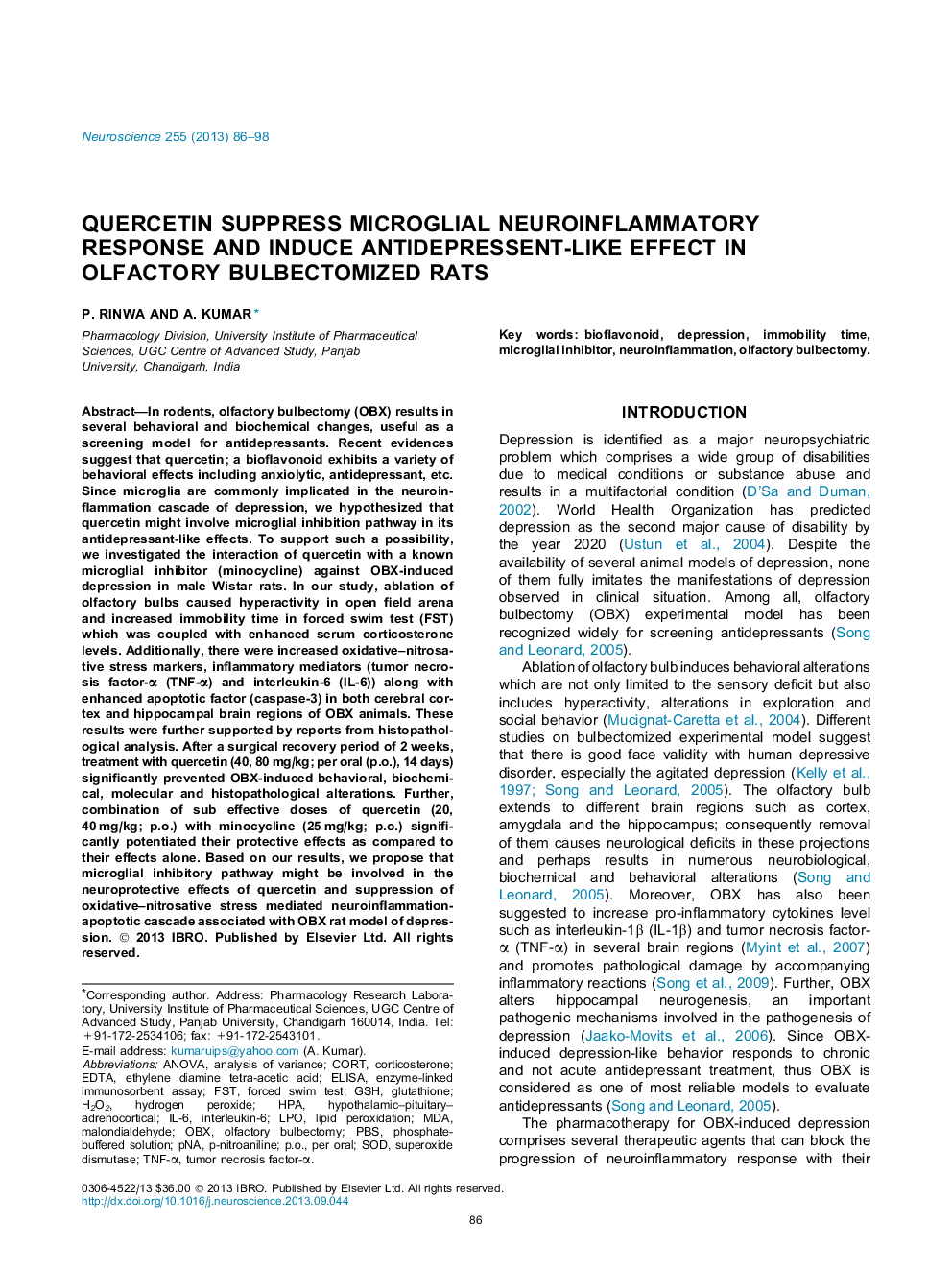| Article ID | Journal | Published Year | Pages | File Type |
|---|---|---|---|---|
| 6274285 | Neuroscience | 2013 | 13 Pages |
â¢Depression is associated with decline in mental and functional capacities.â¢Olfactory bulbectomy (OBX) is a reliable model to assess chronic antidepressants.â¢OBX-induced behavioral, biochemical, molecular and histopathological changes.â¢Possible oxidative-nitrosative stress induced neuroinflammation and cell death.â¢Synergistic effect of quercetin and minocycline as compared to monotherapy.
In rodents, olfactory bulbectomy (OBX) results in several behavioral and biochemical changes, useful as a screening model for antidepressants. Recent evidences suggest that quercetin; a bioflavonoid exhibits a variety of behavioral effects including anxiolytic, antidepressant, etc. Since microglia are commonly implicated in the neuroinflammation cascade of depression, we hypothesized that quercetin might involve microglial inhibition pathway in its antidepressant-like effects. To support such a possibility, we investigated the interaction of quercetin with a known microglial inhibitor (minocycline) against OBX-induced depression in male Wistar rats. In our study, ablation of olfactory bulbs caused hyperactivity in open field arena and increased immobility time in forced swim test (FST) which was coupled with enhanced serum corticosterone levels. Additionally, there were increased oxidative-nitrosative stress markers, inflammatory mediators (tumor necrosis factor-α (TNF-α) and interleukin-6 (IL-6)) along with enhanced apoptotic factor (caspase-3) in both cerebral cortex and hippocampal brain regions of OBX animals. These results were further supported by reports from histopathological analysis. After a surgical recovery period of 2 weeks, treatment with quercetin (40, 80 mg/kg; per oral (p.o.) p.o., 14 days) significantly prevented OBX-induced behavioral, biochemical, molecular and histopathological alterations. Further, combination of sub effective doses of quercetin (20, 40 mg/kg; p.o.) with minocycline (25 mg/kg; p.o.) significantly potentiated their protective effects as compared to their effects alone. Based on our results, we propose that microglial inhibitory pathway might be involved in the neuroprotective effects of quercetin and suppression of oxidative-nitrosative stress mediated neuroinflammation-apoptotic cascade associated with OBX rat model of depression.
